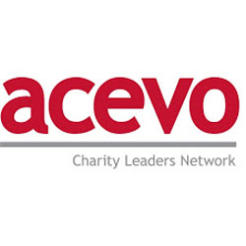Charity members and regular donors could be forced to foot the bill for court costs under the government's proposed changes to the judical review process, Acevo has warned.
Government proposals to shake up judicial review legislation - the process by which a charity or business can challenge the actions of public bodies, including ministers and local authorities – could see “vulnerable communities” unexpectedly liable for court costs, Acevo said.
The Ministry of Justice opened the consultation in July, which said: "The government’s intention is to have greater transparency in how judicial reviews are funded, limiting the potential for third party funders to avoid their appropriate liability for litigation costs."
It proposes that anyone applying for judicial review needs to declare funding sources and that details of third-party funding over £1,500 need to be provided.
According to Acevo, this means any charity pursuing judicial review, and seeking help with legal costs, may have to disclose the names and financial information of its members.
If the charity uses more than £1,500 from an individual or funder to cover legal costs, those contributors must also be declared to the court. Those members and individuals could then be required to pay court costs should the charity lose its case.
In a statement Acevo said: “The move is another attempt by the government to muzzle charities and deny the weakest in society a voice of challenge.”
According to Acevo, the proposals could have a “massive chilling effect on charities’ ability or willingness to seek judicial review and severely damage the confidence of individuals and organisations in becoming members or donating funds in the first place".
“Many charities by their very nature have membership among the most vulnerable communities – the disabled, children, the elderly, the sick - and the threat that membership of a charity may expose them to unexpected court costs above their original donations is a deterrence to participation," it said.
“Judicial review is central to the rule of law, ensuring that government at all levels can be held to account for unlawful decisions. It would be a fundamental breach of justice to deny this right of challenge for the most vulnerable in our society."
Matt Shardlow, chief executive of the charity Buglife and chair of the Wildlife and Countryside Link Legal Strategy Group, told Civil Society News the proposal was “profoundly unjust” and “either a failure to understand how charities operate or a deliberate attempt to silence civil society”.
“The measures would create a huge administrative burden for small charities who believe that an authority has made an illegal decision and then challenge it in court,” he said.
“In addition the proposal that the government should be handed a list of the names and addresses of all the charity members of any financially poor charity that challenges the government in the courts would constitute an unnecessary intrusion into the private life of individuals by a public authority and would breach the Convention on Human Rights. The activities of charities are adequately regulated by the Charity Commission, so these proposals should not apply to charities.”
The consultation opened in July and will run until 15 September 2015.
A spokesman for the Ministry of Justice told Civil Society News: "It is right that courts know who is funding applications for judicial review, especially when the claimant is arguing that they should be given costs protection. While delivering greater transparency, these reforms don’t affect the rules on when third parties have to pay costs.
"The government is currently consulting on the best way to deliver these reforms and welcomes submissions on its suggested approach."








